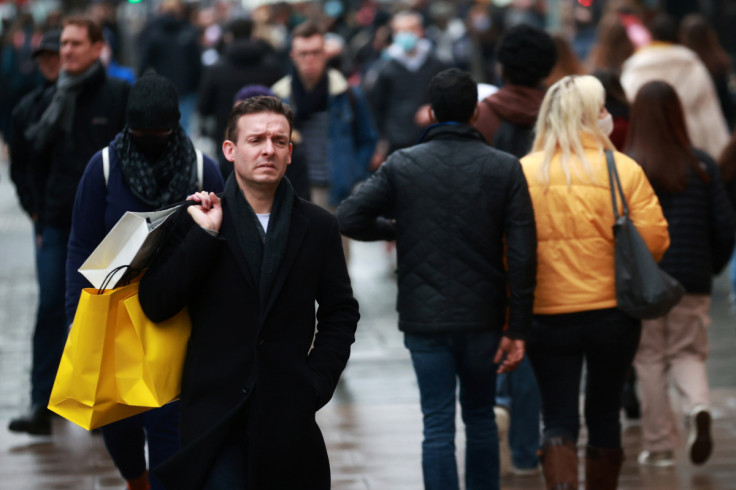British Retail Sales Rebound Despite Cash-strapped Consumers

Cash-strapped British households cut back on eating out and takeaways last month and instead bought food at supermarkets and shopped at discount stores, giving an unexpected boost to retail sales, official data showed on Friday.
British retail sales unexpectedly rebounded by 1.2% in February from the month before, returning sales volumes to their pre-pandemic level, the Office for National Statistics said.
Economists polled by Reuters had forecast that retail sales volumes in February would be 0.2% higher than in January. January sales growth was also revised up to 0.9% from 0.5%.
"In the latest month, discount department stores performed strongly with food shops also doing well as consumers, confronted with cost-of-living pressures, cut back on eating out or purchasing takeaways," ONS statistician Darren Morgan said.
British consumers have been squeezed by inflation which hit a 41-year high of 11.1% in October and has remained in double digits since.
On Thursday the Bank of England said it expected inflation to fall faster than expected over the coming months, due to lower energy prices and the government's extension of subsidies in last week's budget.
However, Friday's data showed that retail sales volumes in February were still 3.5% lower than a year earlier.
Sales volumes at food shops have suffered less of a hit and were down by 2.3% on a year earlier - despite official figures on Wednesday showing an 18% rise in food and drink prices in the year to February, the biggest since 1977.
"At face value, these data further add to the view that the recent resilience in activity is still holding up. But when households' finances are under pressure, it is possible that any improvement in retail sales will be just be met by a softening in non-retail spending such as restaurants," said Ashley Webb, an economist at Capital Economics.
The economy looks on track to avoid a recession which was widely forecast at the turn of the year, and a consumer confidence survey on Friday showed sentiment at a one-year high, though still very weak by historic standards.
But even taking these factors into account, government budget forecasters said last week that Britain was still heading for the biggest two-year reduction in living standards since records began in the 1950s.
The ONS retail sales volumes data are adjusted for inflation and the time of year. The value of retail sales - which reflects the amount consumers spend, rather than the volume of goods bought - was 5.5% higher than a year earlier.
© Copyright Thomson Reuters 2024. All rights reserved.




















